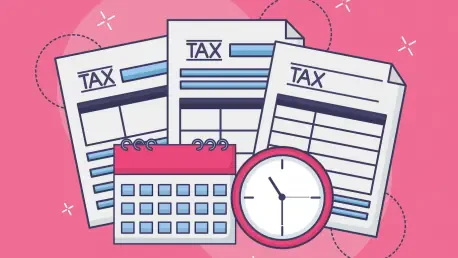Rhode Island’s recent approach to addressing its fiscal challenges has garnered significant attention through the introduction of a tax targeting luxury vacation homes. This move, informally dubbed the “Taylor Swift tax,” seeks to impose additional levies on non-primary residences valued at over $1 million and left unoccupied for more than half a year. The new tax framework calculates the fee based on $2.50 for every $500 past the $1 million threshold, meaning homeowners with high-value properties could face substantial additional costs. High-profile estates, such as Taylor Swift’s, may see taxes increase dramatically, with estimates suggesting an additional $136,000 annually for properties of similar valuation. This initiative marks a concerted effort by the state to plug budgetary shortfalls by tapping into the wealth concentrated in its luxury real estate market. Despite its straightforward intention to raise revenue, the proposal has sparked debates regarding its possible repercussions on the broader housing market.
Broader Economic Implications
This legislative proposal is not without its critics. The Rhode Island Association of Realtors and other industry stakeholders have voiced concerns that this tax could have unintended consequences on the housing market. Critics highlight the potential for the tax to dissuade investment in high-end properties and discourage homeowners from maintaining second residences within the state. There’s also apprehension that this could exacerbate housing unaffordability within an already stressed real estate market. Furthermore, accompanying the so-called “Taylor Swift tax,” the state has suggested increasing the conveyance tax on home sales. Should this come into effect, it may raise seller costs by a staggering 63 percent, further complicating the market dynamics. These economic pressures are particularly pronounced given that the median home price in Rhode Island hovers around $492,939. With such financial burdens placed upon sellers, the policy might inadvertently make home ownership and real estate transactions more cumbersome for potential buyers and sellers alike.
Strategic Revenue Generation Amidst Controversy
Rhode Island has recently made headlines with its new tax strategy aimed at addressing fiscal deficits by targeting luxury vacation homes. Dubbed the “Taylor Swift tax,” this measure introduces extra levies on non-primary residences valued over $1 million and left vacant for half the year or more. The tax formula applies $2.50 per $500 exceeding the $1 million mark, potentially resulting in significant extra expenses for owners of upscale properties. Celebrities and owners of prominent estates, such as Taylor Swift, could face considerable annual tax hikes—estimated around $136,000 for similarly priced homes. This initiative represents the state’s focused attempt to mitigate budget shortfalls by capitalizing on the wealth within its high-end real estate sector. While the tax’s aim is to generate additional revenue clearly, it has ignited debates about its impact on the broader housing market, particularly concerning potential repercussions for property values and market dynamics.









